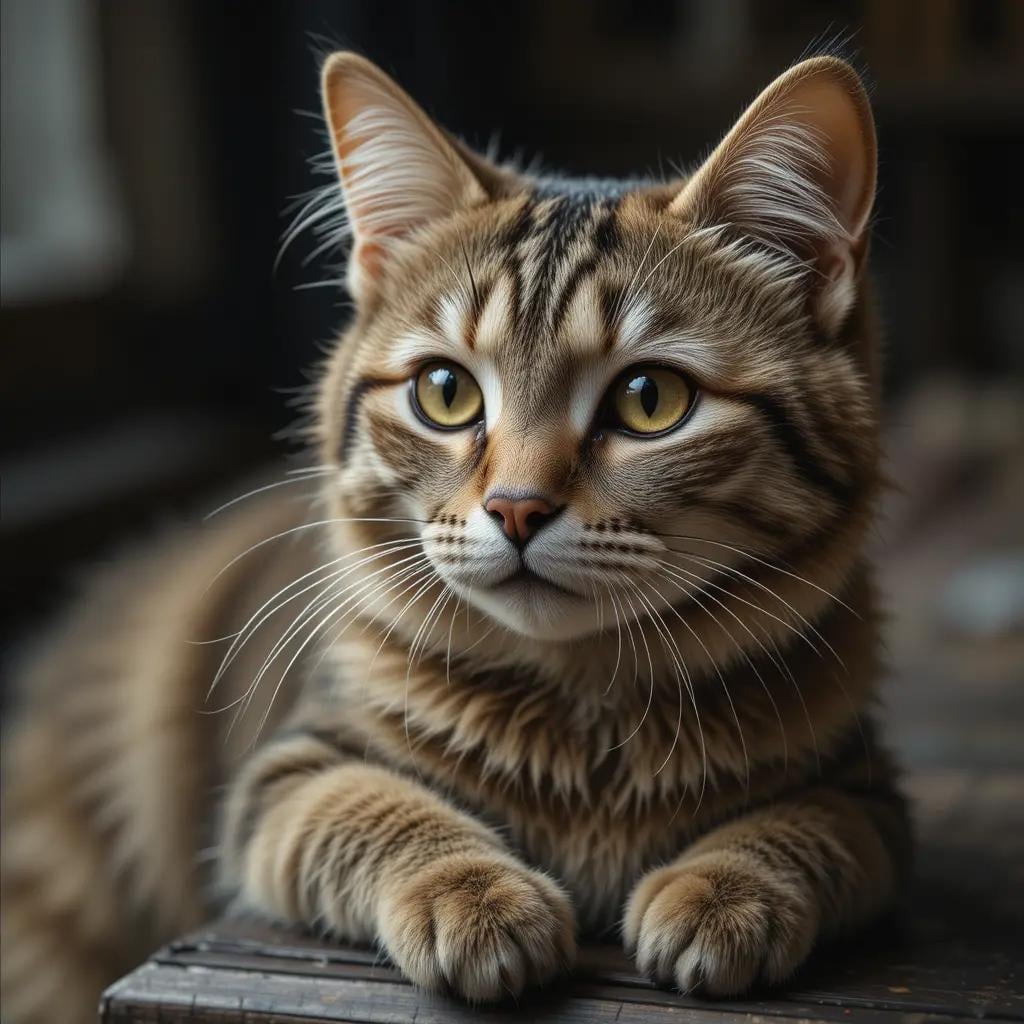Want to Provide the Best for Your Aging Cat? These Essential Tips for Caring for Senior Cats You Need to Know Will Help You Support Their Health and Happiness
As your cat enters its senior years, it becomes increasingly important to adjust how you care for them. Aging cats face different challenges, from physical changes to altered behavior. Ensuring your feline companion enjoys a long, happy, and healthy life requires attentive care, thoughtful adjustments, and a little extra love. Whether your cat is a spry 7-year-old or an elder at 15+, these essential tips will guide you through the process of caring for your senior cat.
- Regular Veterinary Checkups Are a Must
As cats age, their health needs evolve, making routine veterinary visits even more essential. Senior cats are more prone to developing conditions such as kidney disease, arthritis, dental issues, and hyperthyroidism. These problems can be difficult to detect without a vet’s keen eye, as cats often hide discomfort.
A veterinarian can run comprehensive tests, including blood work and urine analysis, to assess your cat’s overall health and identify any emerging health concerns early. Preventative care is paramount, and your vet can provide valuable advice on adjusting your cat’s diet, medication, or lifestyle to accommodate age-related changes. It’s best to schedule annual checkups, or more frequently if your senior cat has health issues, to stay ahead of any potential problems. - Modify Their Diet to Meet Changing Needs
Senior cats have unique nutritional requirements that differ from their younger counterparts. Their metabolism slows down, and they may be less active, which means they require fewer calories. However, the quality of those calories becomes even more crucial.
Senior cats need a balanced diet rich in high-quality protein to maintain muscle mass and support their immune system. Look for food specifically formulated for older cats, which tends to have higher levels of protein, lower fat content, and increased fiber for digestive health. You may also want to incorporate wet food, as it provides hydration and is easier to chew for cats with dental issues.
Be mindful of portion sizes to prevent obesity, which can exacerbate conditions like arthritis and diabetes. If your cat has a specific health condition like kidney disease, consult your vet for a tailored diet plan that meets their needs. - Monitor Their Weight and Activity Level
As your cat ages, it becomes increasingly important to manage their weight and encourage moderate physical activity. Obesity is a significant concern in senior cats, as excess weight places strain on joints and organs, potentially leading to other health issues. Conversely, sudden weight loss could indicate underlying health problems such as hyperthyroidism, diabetes, or kidney disease.
Weigh your cat regularly and monitor changes in their body condition. If you notice they’re losing weight despite eating well, or gaining weight without increasing food intake, consult your veterinarian immediately.
To keep your cat active, provide gentle exercise opportunities. Encourage playtime using interactive toys like feather wands or laser pointers. Even if they’re not as spry as they once were, a bit of light play helps maintain mobility and mental stimulation. Keep in mind, however, that your senior cat might tire faster, so always respect their limits. - Ensure Comfortable Resting Areas
Arthritis and joint pain are common in older cats, and they may become less active or seek out softer places to rest. It’s crucial to provide your cat with comfortable, accessible spots where they can relax without difficulty. Elevated cat beds or cushioned pads will help relieve pressure on their joints, and a heated bed may offer extra comfort during colder months.
You should also ensure that their litter box, food, and water dishes are easy to reach. Cats with arthritis or decreased mobility may struggle to jump or climb, so providing low-entry litter boxes and placing their food and water bowls at ground level can make a significant difference in their quality of life. - Dental Health Is Crucial
Dental disease is widespread among older cats, often leading to pain, tooth loss, and even systemic health issues. Regular dental checkups are essential, and your veterinarian may recommend professional cleanings to prevent the buildup of plaque and tartar. Without proper dental care, bacteria can enter the bloodstream, leading to heart, liver, or kidney problems.
In between professional cleanings, you can maintain your cat’s oral hygiene by offering dental treats or toys designed to reduce plaque. If your cat tolerates it, try brushing their teeth with a specially designed toothbrush and toothpaste for pets. It’s also important to watch for signs of dental discomfort, such as drooling, bad breath, or difficulty eating. - Monitor Their Mental Health
Senior cats may experience cognitive dysfunction syndrome (CDS), a condition similar to dementia in humans. Symptoms of CDS include disorientation, disrupted sleep patterns, altered behavior, and reduced social interaction. While CDS is not reversible, you can improve your cat’s mental health by providing a stimulating environment.
Offer your cat interactive toys, puzzle feeders, and regular play sessions to keep their minds active. Additionally, keep a consistent routine so they feel secure. Maintaining a calm and stress-free environment is also beneficial; avoid sudden changes to their surroundings, such as moving furniture or introducing loud noises.
If you notice significant behavioral changes, such as increased vocalization or confusion, consult your vet for advice on managing cognitive decline. - Hydration Is Key
As cats age, they may become less interested in drinking water, which can lead to dehydration and exacerbate kidney or urinary tract issues. Chronic dehydration is particularly concerning for senior cats, as it can worsen kidney function or cause urinary tract infections.
Encourage hydration by providing fresh water in several locations around your home, as some cats may prefer to drink from different places. Consider investing in a cat water fountain, as many cats prefer running water. You can also incorporate wet food into their diet, as it contains more moisture than dry kibble.
In some cases, your veterinarian may recommend subcutaneous fluid therapy, which involves administering fluids under the skin to help your cat stay hydrated. - Maintain a Close Bond with Your Cat
As your cat ages, they may require more attention, comfort, and affection. They may not always seek interaction, but they will appreciate your presence, especially when they’re not feeling well. Cats are highly sensitive to their environment, and they thrive on routine and companionship.
Take the time to pet, groom, and talk to your cat regularly. Physical touch can provide reassurance and strengthen your bond. Older cats may also need more help with grooming, particularly long-haired breeds, which may struggle to keep their coat in top condition. Regular brushing will help prevent matting and reduce hairballs. - Be Patient and Adjust Expectations
Caring for a senior cat requires patience. Their needs and behavior may change, and you may have to adjust your expectations accordingly. Remember that older cats are less agile, may sleep more, and may be less interested in active play. However, they still offer unconditional love and companionship.
Provide them with the necessary care, and cherish the time you have together. Senior cats often bond even more deeply with their owners as they age, providing a rewarding and fulfilling experience for both you and your feline friend.
Conclusion
Caring for senior cats is a rewarding experience that demands understanding, compassion, and dedication. By focusing on regular vet visits, a tailored diet, weight management, and enhancing their comfort, you can ensure your aging cat enjoys their later years to the fullest. With proper care and attention, your senior cat can continue to live a vibrant, happy, and healthy life by your side.

